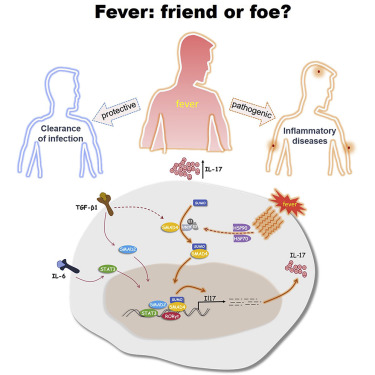标签:# Study
BATF and IRF4 cooperate to counter exhaustion in tumor-infiltrating CAR T cells
3D-organoid culture supports differentiation of human CAR+ iPSCs into highly functional CAR T cells
CAR T cells produced in vivo to treat cardiac injury
Febrile Temperature Critically Controls the Differentiation and Pathogenicity of T Helper 17 Cells
- https://doi.org/10.1016/j.immuni.2020.01.006

Single-cell sequencing: the technological revolution behind a new wave of multiomic studies in basic and cancer research
CAR T-cell Therapy
mRNA therapeutics in cancer immunotherapy
ADVANTAGES:
Enables druggability of intracellular, transmembrane, and secreted proteins.
Restores gene expression without risk of genomic integration.
Druglike behavior: ability to repeat dose and adjust dose/dose interval.
Endogenous post-transcriptional modifications increase probability of correct folding, glycosylation, and trafficking of the protein and decrease risk of immunogenicity.
Minimal changes to the manufacturing process for multiple targets.
Rapid development from target gene selection to product candidate.
CHALLENGES:
Stability: mRNA is susceptible to degradation.
Delivery: LNPs must be tissue-specific and biodegradable.
Immunogenicity: risk of activating the immune system via Toll-like and retinoic acid–inducible gene–like receptors.
Manufacturing: difficult to achieve high quality and highly pure mRNA with scalable manufacturing processes/
APPLICATIONS:
Because of the central role of mRNA in protein expression, mRNA technology has broad applicability in the treatment or prevention of disease.
Two mRNA-based coronavirus disease 2019 (COVID-19) vaccines have Emergency Use Authorization, demonstrating the clinical validation of this revolutionary approach.
mRNA replacement therapy for genetic diseases is being developed for lung and liver diseases (inhaled and intravenous delivery).
Immuno-oncologic approaches can leverage the intrinsic immune adjuvant effects of mRNA.